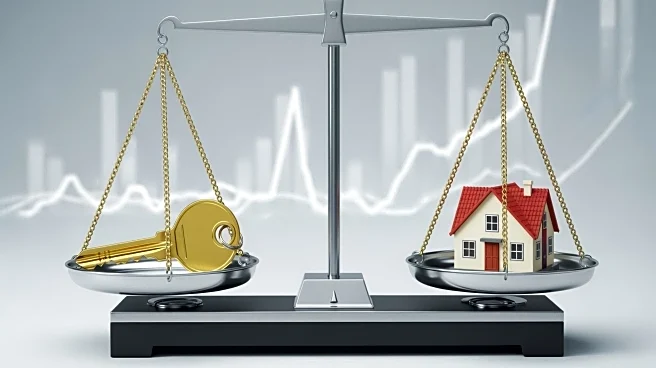What's Happening?
The insurance industry is emphasizing the importance of accurate property valuation to prevent underinsurance and ensure adequate coverage in the event of a loss. Since the pandemic, the costs of materials,
labor, and rebuilding have fluctuated, leading many insured parties to rely on outdated valuation methods. This practice risks underinsurance and potential financial losses. Independent property appraisals are being advocated as a solution to align insurance schedules with actual reconstruction costs and asset mixes. These appraisals provide a clear definition of value, asset-level accuracy, and schedule credibility, which are crucial for underwriters in rating and catastrophe modeling. Brokers are encouraged to lead the process of commissioning and maintaining defensible property values.
Why It's Important?
Accurate property valuation is critical for the insurance industry as it directly impacts the financial stability of businesses and property owners. Underinsurance can lead to significant financial losses, especially when coinsurance clauses and sub-limits erode recoveries on partial losses. By ensuring that property values are accurately assessed and updated, insurers and insured parties can avoid contentious claims and ensure that policies respond as intended during a loss. This approach not only benefits the insured by providing adequate coverage but also helps insurers manage risk more effectively. The emphasis on accurate valuations reflects a broader industry trend towards transparency and accountability in insurance practices.
What's Next?
The insurance industry is likely to see increased adoption of independent property appraisals as a standard practice. Brokers will play a central role in facilitating these appraisals and ensuring that property schedules are maintained accurately over time. This shift may lead to more efficient placement discussions and reduced friction on limits, deductibles, and sublimits. As the industry adapts to these changes, there may be further developments in appraisal methodologies and technologies to enhance accuracy and efficiency. Stakeholders, including insurers, brokers, and property owners, will need to collaborate closely to implement these practices effectively.
Beyond the Headlines
The move towards accurate property valuation has deeper implications for the insurance industry, including ethical considerations around transparency and fairness in coverage. By addressing valuation gaps, the industry can build trust with clients and demonstrate a commitment to providing reliable and equitable insurance solutions. This shift may also influence regulatory standards and industry guidelines, prompting a reevaluation of existing policies and practices. In the long term, the focus on accurate valuations could lead to more resilient and sustainable insurance markets, benefiting both insurers and insured parties.











